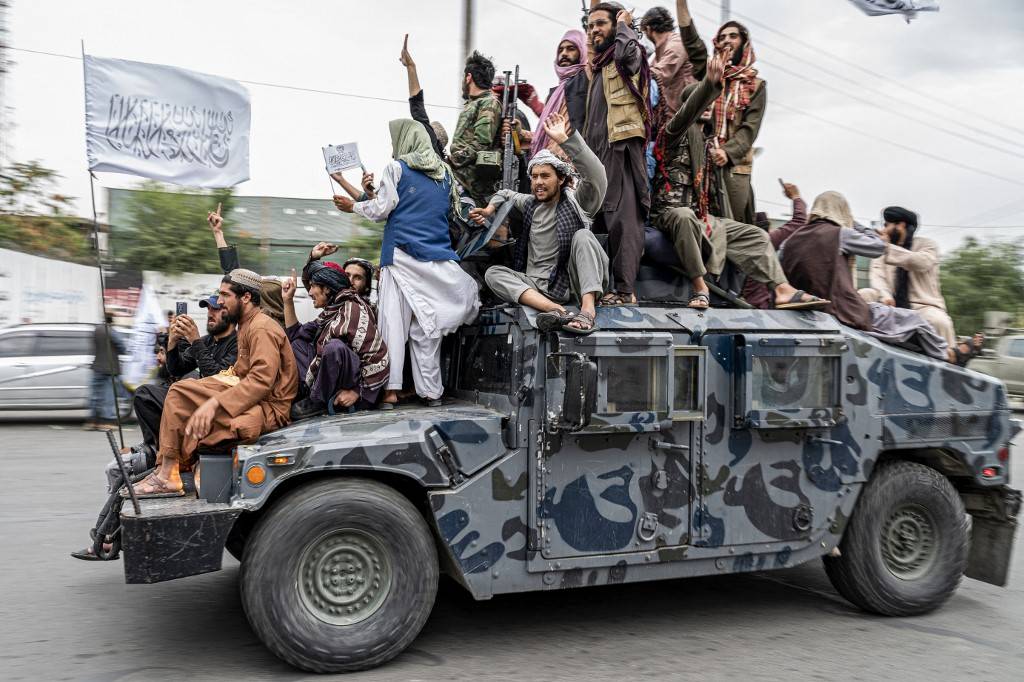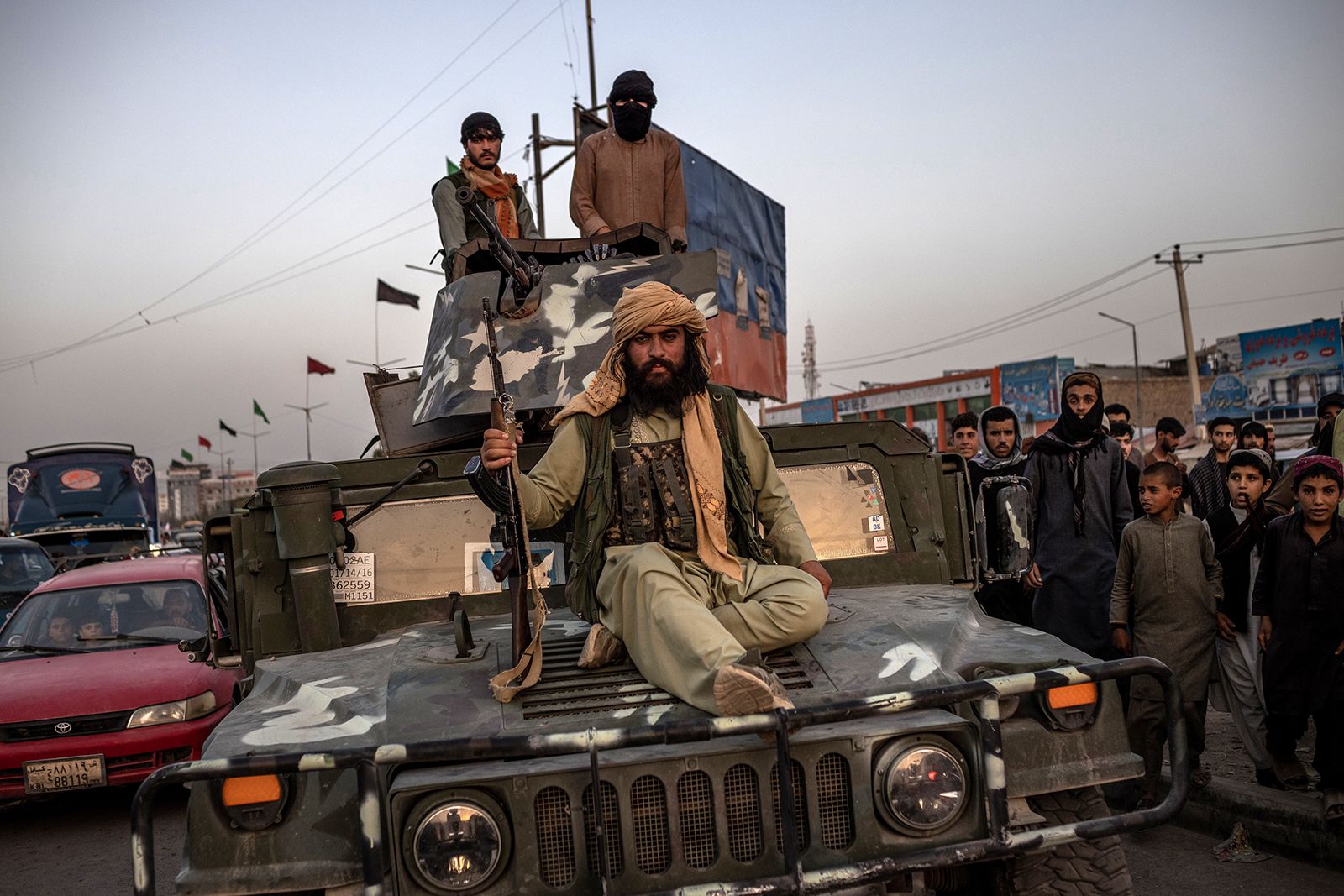Taliban To Govern Afghanistan By Their Interpretation Of Sharia Law
Taliban to govern Afghanistan by their interpretation of Sharia Law as they have ordered judges in Afghanistan to fully enforce their version of Sharia Law, which could include public executions, amputations, and flogging. This is a move that experts fear will make human rights in the poor country even worse.
Author:Tyreece BauerReviewer:Elisa MuellerNov 15, 2022199.8K Shares2.6M Views

Taliban to govern Afghanistan by their interpretation of Sharia Lawas they have ordered judges in Afghanistan to fully enforce their version of Sharia Law, which could include public executions, amputations, and flogging. This is a move that experts fear will make human rights in the poor country even worse.
Taliban spokesman Zabihullah Mujahid said that Afghanistan's Supreme Leader Alaiqadar Amirul Momineen gave the "obligatory" order after meeting with judges to "investigate the cases of thieves, kidnappers, and seditionists."
Mujahid tweeted Sunday,
“„Those cases that have met all the Shariah conditions of limitation and retribution, you are obliged to issue the limitation and retribution, because this is the order of the Sharia… and it is obligatory to act.- Taliban spokesman Zabihullah Mujahid
Kaheld Abou El Fadl, a professor of Islamic law at UCLA and one of the world's top experts on Sharia law, says that the laws of Sharia have been debated and interpreted in many different ways for a long time.
“Every point of law you’ll find 10 different opinions … Sharia is very open-ended,” he said.
El Fadl said that Sharia law in Islamic law means “search for the divine will." “Although, both in Western and native discourses, it is common to use Sharia interchangeably with Islamic law, Sharia is a much broader and all encompassing concept," according to a statement from El Fadl’s website.
When the Taliban were in power from 1996 to 2001, they followed the doctrine very strictly. For example, they killed people in public, stoned them, beat them, and cut off limbs.
El Fadl said that these punishments were rarely used in the 1400 years of Sharia because most Islamic jurists didn't see the law the way the Taliban does now.
“„The Taliban have a particular approach to Sharia that one cannot ignore. Anyone who doesn’t fit their definition can be possibly put to death.- Kaheld Abou El Fadl, a professor of Islamic law at UCLA
After taking power last August, the Taliban tried to show the world that they were more moderate so they could get international support. However, in the months since, the group has made it harder for people to do what they want.
Women in Afghanistan can no longer work in most fields, and they need a male guardian to travel long distances. Girls are also not allowed to go back to high school.
Last week, women were not allowed to go to amusement parks in the capital city of Kabul. This was because the Taliban's morality ministry said that women would not be allowed to go to public parks.
During the Taliban's first time in power, most kinds of music were banned because they were not Islamic. In August of this year, Afghan folk singer Fawad Andarabi was taken from his home and killed, which was similar to what the Taliban had done before.
Farhan Haq, the UN Secretary-deputy General's spokesman, said that the Taliban's recent statement about Sharia law was "worrying."
Haq said,
“„Since they took over as de facto authority, we expect them to abide by their promise to uphold existing human rights commitments made in Afghanistan. They have not been living up to their commitments. We will continue to press them on this. We are opposed to the death penalty in all its forms.- Farhan Haq, the UN Secretary-deputy General's spokesman
Since the group took over the country last year, the security situation has also gotten worse, and the country has become more isolated and poorer.
Afghan Supreme Leader Orders Islamic Law
fghanistan's supreme leader has ordered judges to fully implement aspects of Islamic law that include public executions, stonings and floggings, and the amputation of limbs for thieves, the Taliban's chief spokesman said.
Zabihullah Mujahid tweeted late Sunday that the "obligatory" command by Hibatullah Akhundzada came after the secretive leader met with a group of judges.
Akhundzada, who has not been filmed or photographed in public since the Taliban returned to power in August last year, rules by decree from Kandahar, the movement's birthplace and spiritual heartland.
The Taliban promised a softer version of the harsh rule that characterised their first stint in power, from 1996-2001, but have gradually clamped down on rights and freedoms.
Conclusion
The United Nations says that nearly half of the country is very hungry. In a survey done in May by the International Rescue Committee, 90% of Afghans said that food was their most important need. This means that about 43% of Afghans live on less than one meal a day.

Tyreece Bauer
Author
A trendsetter in the world of digital nomad living, Tyreece Bauer excels in Travel and Cybersecurity. He holds a Bachelor's degree in Computer Science from MIT (Massachusetts Institute of Technology) and is a certified Cybersecurity professional.
As a Digital Nomad, he combines his passion for exploring new destinations with his expertise in ensuring digital security on the go. Tyreece's background includes extensive experience in travel technology, data privacy, and risk management in the travel industry.
He is known for his innovative approach to securing digital systems and protecting sensitive information for travelers and travel companies alike. Tyreece's expertise in cybersecurity for mobile apps, IoT devices, and remote work environments makes him a trusted advisor in the digital nomad community.
Tyreece enjoys documenting his adventures, sharing insights on staying secure while traveling and contributing to the digital nomad lifestyle community.

Elisa Mueller
Reviewer
Elisa Mueller, a Kansas City native, grew up surrounded by the wonders of books and movies, inspired by her parents' passion for education and film.
She earned bachelor's degrees in English and Journalism from the University of Kansas before moving to New York City, where she spent a decade at Entertainment Weekly, visiting film sets worldwide.
With over 8 years in the entertainment industry, Elisa is a seasoned journalist and media analyst, holding a degree in Journalism from NYU. Her insightful critiques have been featured in prestigious publications, cementing her reputation for accuracy and depth.
Outside of work, she enjoys attending film festivals, painting, writing fiction, and studying numerology.
Latest Articles
Popular Articles
